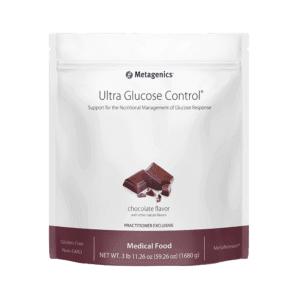Today, half of all adults in the U.S. have diabetes or pre-diabetes, with 1.2 million people diagnosed with type II diabetes every year. And although diabetes is a serious health condition, it’s one primarily driven by diet & lifestyle factors that many people are capable of reversing with the right support.
The most prevalent kind of diabetes is known as type II diabetes, but there are actually 3 primary types of diabetes:
Type I diabetes where the pancreas produces little or no insulin.
Type II diabetes which affects the way the body processes glucose and results in blood sugar imbalance.
Gestational diabetes which is a form of high blood sugar that affects pregnant women and usually resolves after delivery.
If you’re dealing with diabetes, we can help.
Understanding Type II Diabetes & Insulin
Type II diabetes is a metabolic disorder characterized by insulin resistance and elevated blood sugar levels. Unlike type I diabetes, where the body doesn't produce insulin, individuals with type II diabetes either don't produce enough insulin or their body resists its effects, leading to problems with blood sugar regulation.
Insulin resistance occurs when cells no longer respond to the constant bombardment of insulin in an attempt to regulate blood sugar. After an extended period of time, insulin resistance causes the body to require more and more insulin to lower blood sugar.
Insulin resistance can occur over many years, but changes in insulin sensitivity can occur in the body in as little as a few days, making your body’s use of insulin important right now, and not just years in the future.
Type II Diabetes Causes & Symptoms
Type II diabetes often stems from a combination of genetic predisposition, lifestyle factors, and environmental influences. Sedentary lifestyles, poor dietary choices, and excess weight contribute to insulin resistance. Symptoms of type II diabetes include:
If you’re experiencing any of the above symptoms, don’t hesitate to contact us today — virtual appointments are available!
The Integrative Medicine Approach to Type II Diabetes
Our clinic embraces a holistic, functional medicine approach, aiming to identify and address the root causes of type II diabetes. Through personalized lifestyle modifications, dietary changes, and targeted supplementation, we empower individuals to take charge of their health. Our focus is on restoring balance, optimizing metabolic function, and promoting long-term well-being.
In contrast, conventional treatments often focus on managing symptoms through medications like metformin and insulin. While effective in some cases, this approach might not address the underlying causes, potentially leading to ongoing dependency on medications.
A Closer Look at Diabetes & Blood Sugar – Testing & Diagnostics
Our clinic employs advanced functional medicine lab tests to delve into the root causes of type II diabetes.
Comprehensive assessments include blood sugar and insulin levels, alongside an exploration of other hormones impacting metabolic health. These tests provide a nuanced understanding, allowing for personalized and targeted treatment plans.
Integrative providers may also use lifestyle therapies to identify and address metabolic issues, such as targeted supplementation, nutrition counseling, or traditional Eastern & herbal remedies.
Tests may include:
Blood Sugar Monitoring: Continuous glucose monitors or other methods track your blood sugar control in response to different activities throughout the day, such as eating & exercise.
Insulin Testing & Bloodwork: Tests evaluating metabolic markers, such as insulin and kidney function, provide insights into your metabolism & blood sugar health.
Oral Glucose Tolerance Test (OGTT): Assessing levels of sugar in your blood at timed intervals after consuming a glucose solution to determine how long it takes for blood sugar to return to normal.
Hormone Evaluation: Addressing hormone imbalances with cortisol, melatonin, and others can help regulate blood sugar imbalances with type II diabetes.
Comprehensive Stool Analysis: Evaluating the gut microbiome through stool tests helps identify dysbiosis, infections, and other gut-related issues that worsen insulin resistance.
Toxicity Screening: Tests for heavy metals and other environmental toxins can identify potential contributors to metabolic symptoms.
Shop Diabetes Management Products
-

Metagenics Ultra Glucose Control® for Prediabetes Prevention
$95.50 Read more This product has multiple variants. The options may be chosen on the product page Quick View


